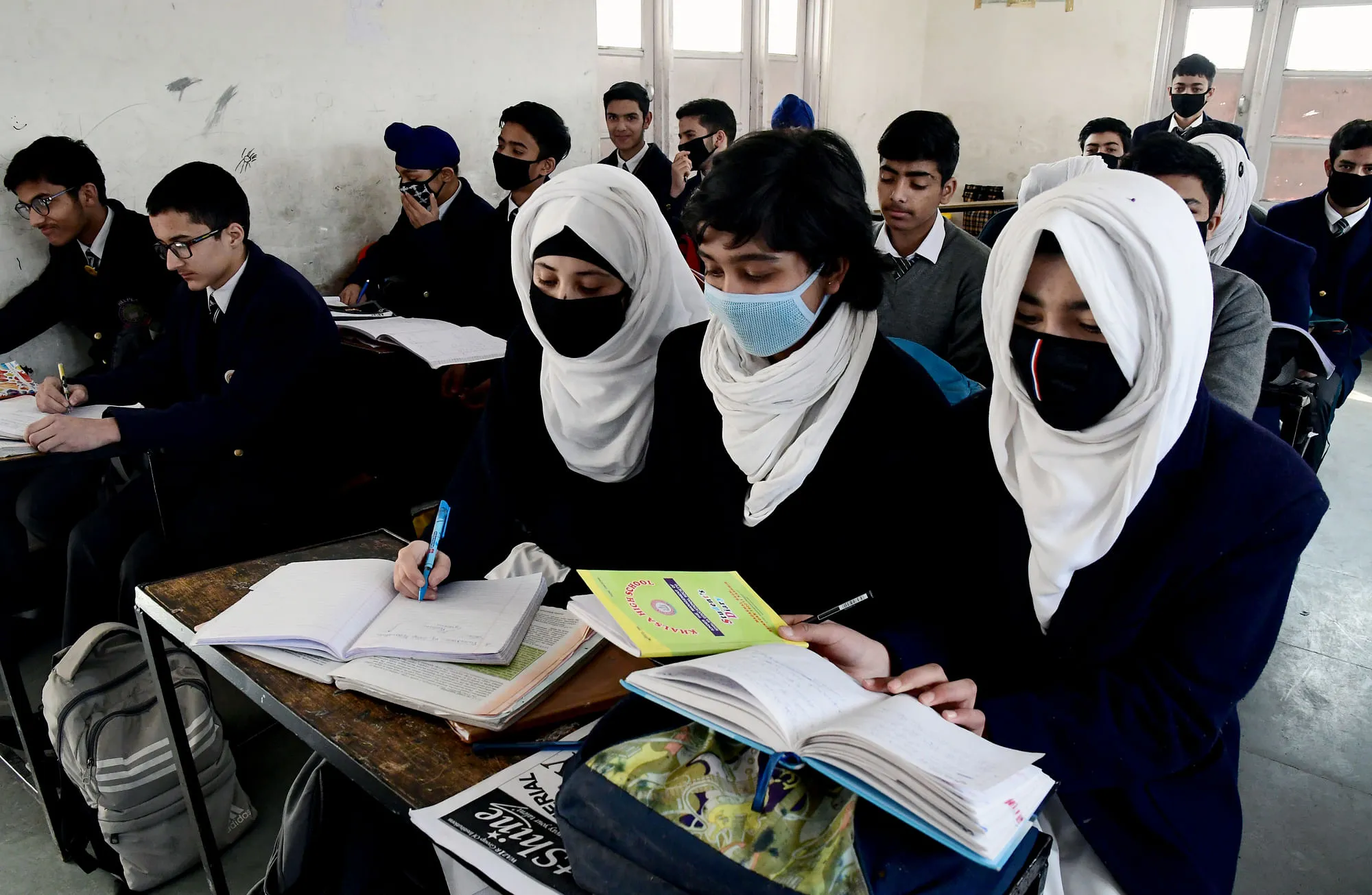Srinagar: The educational institutions in Kashmir witnessed a fruitful academic session of over 200 working days after years.
From primary schools to higher educational institutions, the academic session witnessed the highest number of working days from March till November end this year.
Earlier, the schools across Kashmir reopened for routine class work of students from March 2, 2022, in a phased manner for students of primary classes to higher secondary class students.
It was after a gap of over two years that the routine academic activities started in the educational institutions across Kashmir.
During the previous years, the educational institutions were the worst hit due to the outbreak of COVID-19 pandemic, which resulted in the prolonged closure of the institutions.
Prior to the resumption of the classes, Chief Secretary Arun Kumar Mehta said that the academic year 2022-23 would be the year of educational transformation for J&K.
“Each head of the institution will be personally responsible for a healthy teaching environment. There should be no tolerance for unhealthy activities in places of learning,” he said.
In the wake of this, separate directions were issued by the School Education Department (SED) for ensuring smooth transition of students from online mode to offline mode by creating a favourable environment for the students in the schools.
Notably, of the 275 days including 36 Sundays and around 40 holidays from March 2 to November 30 of 2022, the schools up to primary level classes had a fruitful academic session of 200 days.
The students as well as the teachers are cherishing the move.
While November 30, 2022, marked the last working day for the primary schools, the middle and higher secondary level schools would continue their routine classwork till December 12 and December 19, adding more academic days to the session.
“This year the students got enough time not just to do their academic work but it also gave teachers a space to fill the learning gaps,” said Mehraj Sufi, a teacher posted in Chandoosa zone of Baramulla district.
“This year the education sector did not face any uncertainty which we used to have that would affect studies badly,” he said.
The department has also shifted the examination to March from the current year. Under this arrangement, the annual 2022 examinations would be held in March 2023.
The move has paved the way for adoption of a Uniform Academic Calendar in Kashmir.
“The decision to have a uniform academic session will also give more time to students to prepare for their exams that will be held in March,” the teacher said.
The education sector saw the worst times during the previous years but the stakeholders are keeping their hopes high that no such challenges would be faced in the future, which would allow this sector to grow exponentially.
“It is a fact that 2022 was a smooth academic session. There were no disruptions in the academic activities from any corner,” said President of Private Schools Association Jammu and Kashmir (PSAJK) Ghulam Nabi Var.
“After a gap of several years, 2022 was the first academic session which was without disruptions. Schools were running smoothly,” he said.
Var said that the schools had completed the entire syllabus by September, which was only possible due to a smooth session.
“The government later decided to keep the session open and shifted annual exams to March but from October we were ready to conduct the exams,” he said.
Besides completing the syllabus on time, the teachers were given ample time to fill the learning gaps developed among the students during the previous years due to the prolonged closure of schools.
“This year was fruitful in two ways. One was that we really got enough academic days for our children, which we utilised till September ending. Later, in October and November, we conducted remedial classes for the students which proved fruitful to fill the learning gaps of the students,” said Umar Bhat, a government school teacher from Baramulla.
Besides schools, the training institutes like SCERT Kashmir also availed the highest number of working days for holding training and other requisite programmes
“This year was a fruitful year for training and research at SCERT J&K,” said Rabia Naseem Mughal, Head of the Education Communication Technology and Computer Science Department at J&K SCERT.
“From subject-based training to soft skill enhancement and pedagogical workshops to leadership development programmes, SCERT performed a number of processes and activities and started various research projects on critical educational issues,” she said.
Director School Education Kashmir (DSEK) has already stated that routine classwork would continue in schools till December for remedial teaching purposes. “The remedial classes were held to overcome the learning gaps among the students,” he said.







